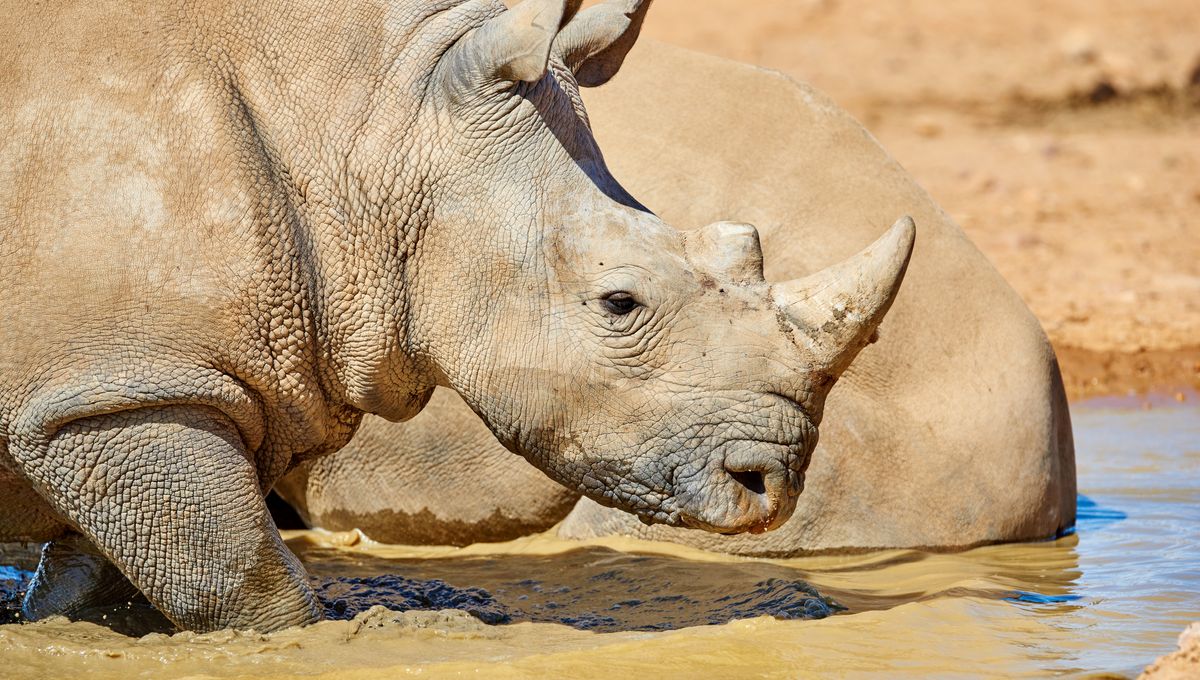
Scientists in South Africa have for the first time inserted radioactive material into the horns of live rhinos, as part of efforts to make the horns easier to detect at international borders and curb poaching.
After facing near extinction, successful conservation work has seen rhino populations in Africa back on the up, with the vast majority of those animals living in South Africa. However, their home still has a poaching problem; 499 rhinos were hunted and killed in the country last year, and the rangers that try to protect them are increasingly finding themselves in the line of fire, too.
Poachers target the animals for their distinctive horns, which are highly sought after in Asian countries for their use in traditional medicines.
“This has led to their horns currently being the most valuable false commodity in the black-market trade, with a higher value even than gold, platinum, diamonds and cocaine. Sadly, rhino horns play a large role in funding a wide variety of criminal activities globally,” said Professor James Larkin, director of the University of the Witwatersrand’s Radiation and Health Physics Unit, in a statement.
Larkin has spearheaded the Rhisotope Project, which has come up with a novel way of tackling the poaching problem – radioactivity.
After three years in development, on June 24 Larkin and the team began inserting low-dose, non-toxic radioisotopes into the horns of 20 live – but very much sedated – rhinos living in the UNESCO Waterberg Biosphere Reserve.
“Each insertion was closely monitored by expert veterinarians and extreme care was taken to prevent any harm to the animals,” Larkin explained. “Over months of research and testing we have also ensured that the inserted radioisotopes hold no health or any other risk for the animals or those who care for them.”
The goal of using radioactive material is to make poached horns easier to detect at places like airports and harbors, where there are already plenty of radiation detectors in place. Not only that, but it’s hoped that it’ll prevent the horns from being poached in the first place because, being radioactive, they’d no longer be fit for human consumption.
“Ultimately, the aim is to try to devalue rhinoceros horn in the eyes of the end users, while at the same time making the horns easier to detect as they are being smuggled across borders,” said Larkin.
The team will now keep a close eye on the animals over the next six months, monitoring their vital statistics and overall health. All being well, it’s hoped the same technique could be applied to other animals that are the target of poaching, like elephants and pangolins.
“This novel approach pioneered by Prof Larkin and his colleagues has the potential to eradicate the threat of extinction our unique wild-life species, especially in South Africa and on the continent,” concluded Professor Lynn Morris, the Deputy Vice-Chancellor of Research and Innovation at Wits University.
Source Link: Radioactive Rhino Horns Hoped To Save Species From Poaching